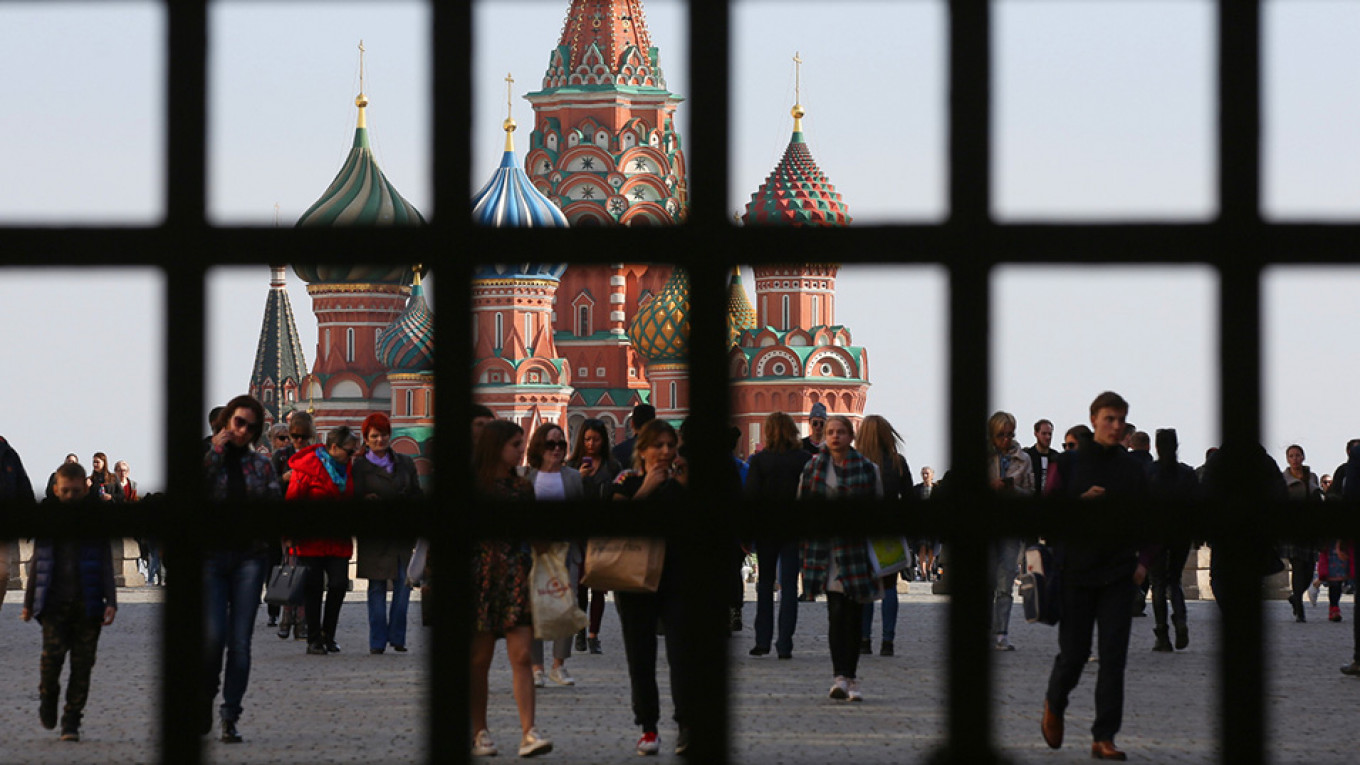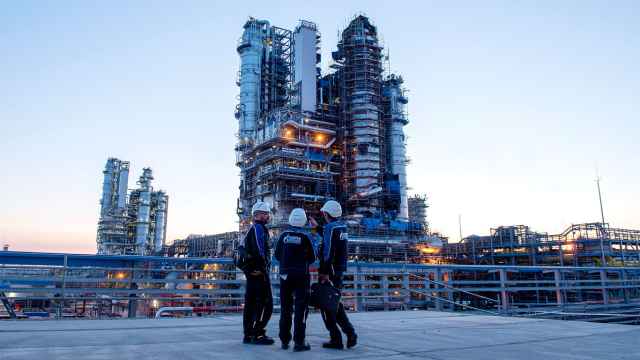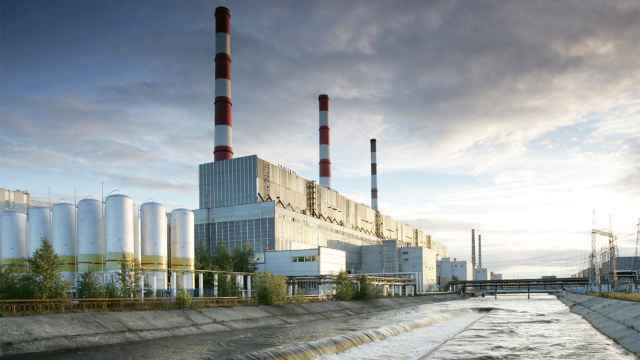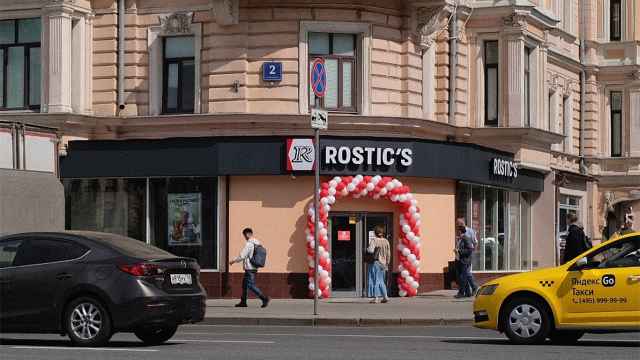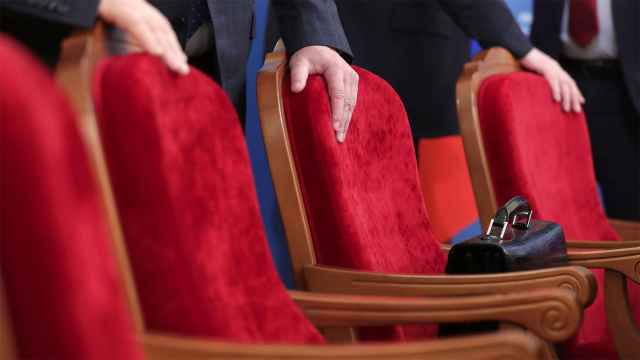Russia’s economy grew 0.5 percent in the first quarter, well below estimates, as expansion stalled after last year’s surprisingly strong performance.
The preliminary estimate from the official statistics agency Rosstat came in under the lowest forecast in a Bloomberg survey of 14 economists. The median was for 1.2 percent.
A value-added-tax hike that took effect on Jan. 1 has been a drag on growth after helping boost the performance at the end of last year to the best since 2012. Though disappointing for the Kremlin’s hopes for faster expansion, the weak result could provide further encouragement for the central bank to resume cutting interest rates at its next meeting in June.
“This is a disappointing reading, it shows not only weakness in domestic demand, which we expected due to the VAT hike, but also poor investment performance,” said Tatiana Orlova, an economist at Emerginomics in London. “The central bank has an extra reason to cut its policy rate in June.”
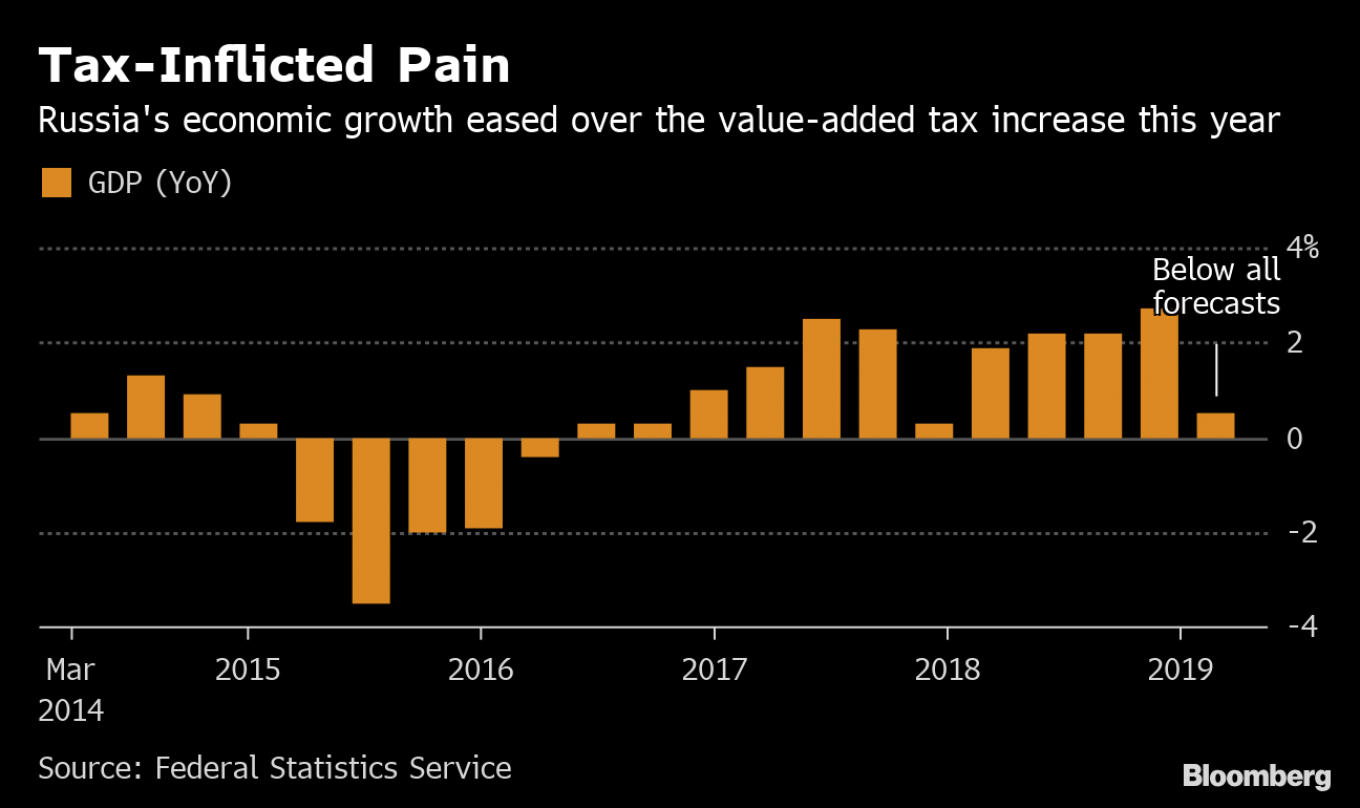
This weak report could also help defuse recent criticism of Rosstat for producing overly rosy economic data.
The Economy Ministry said the first-quarter result was “somewhat lower” than its 0.8 percent estimate and blamed the weak performance on the tax hike, as well as slow corporate and mortgage-lending growth.
“This is all happening against the background of a strong budget surplus,” said Dmitry Dolgin, an economist at ING in Moscow. “The government’s reaction could be a further review of fiscal policy in the direction of easing.”
What Bloomberg’s economists say
“Quarterly growth was close to zero on a seasonally adjusted basis. A pullback in consumer spending will take the blame, but this raises questions about broader weakness.” -- Scott Johnson, Bloomberg Economics
Consumer confidence fell to a historic low of 62 in the first quarter, three points below the previous reading, market researcher Nielsen said in a report. With the current economic conditions, fewer people are expecting favorable financial prospects and think now is not the best time to spend money, according to Marina Volkova, head of analytics and consulting at Nielsen Russia.
The Bank of Russia sees the economy expanding 1.2 percent - 1.7 percent this year, citing the VAT increase as “a small restraining effect” and noting that planned government infrastructure spending could boost growth later this year.
But BofA Merrill Lynch Global Research warned in a report Thursday that increasing risks to global growth could also cloud the outlook for Russia next year, with the 2020 result sliding below 1 percent, confounding hopes of an uptick.
A Message from The Moscow Times:
Dear readers,
We are facing unprecedented challenges. Russia's Prosecutor General's Office has designated The Moscow Times as an "undesirable" organization, criminalizing our work and putting our staff at risk of prosecution. This follows our earlier unjust labeling as a "foreign agent."
These actions are direct attempts to silence independent journalism in Russia. The authorities claim our work "discredits the decisions of the Russian leadership." We see things differently: we strive to provide accurate, unbiased reporting on Russia.
We, the journalists of The Moscow Times, refuse to be silenced. But to continue our work, we need your help.
Your support, no matter how small, makes a world of difference. If you can, please support us monthly starting from just $2. It's quick to set up, and every contribution makes a significant impact.
By supporting The Moscow Times, you're defending open, independent journalism in the face of repression. Thank you for standing with us.
Remind me later.


